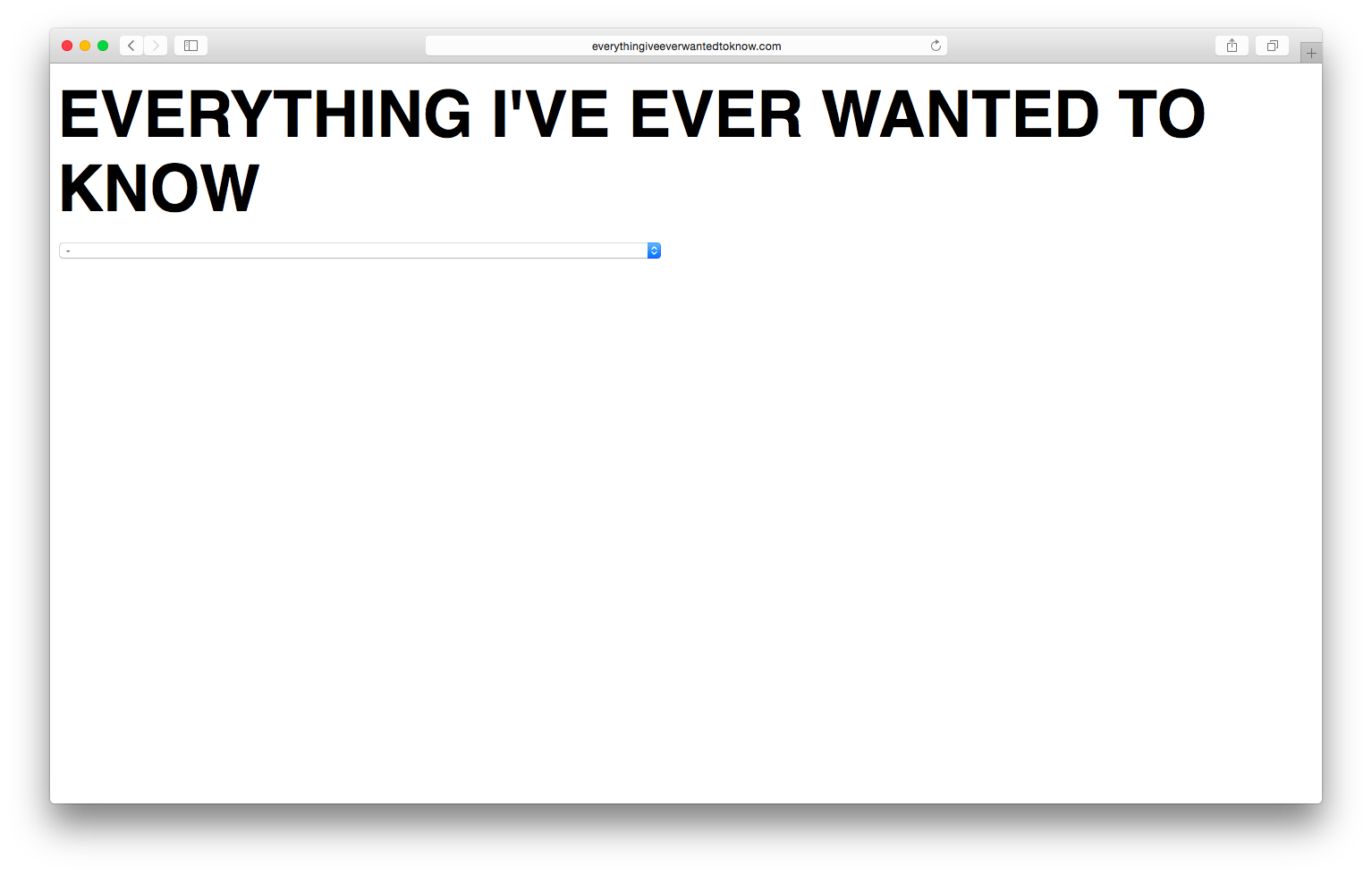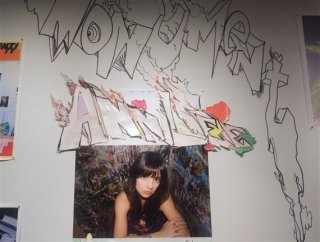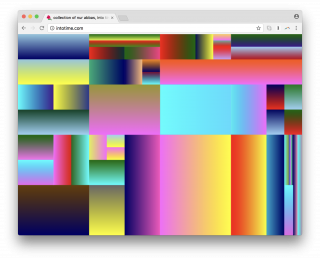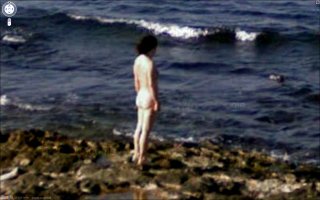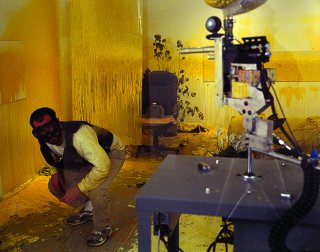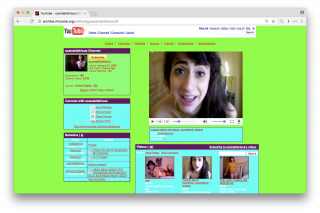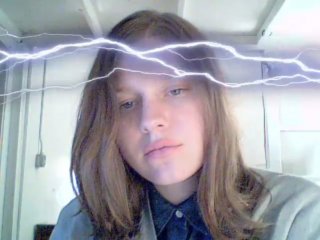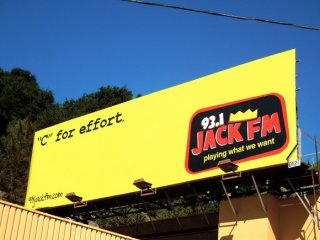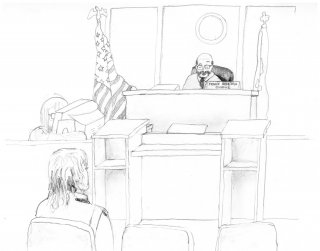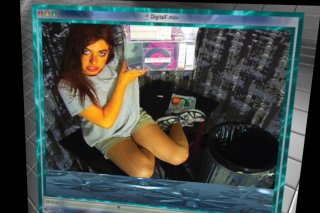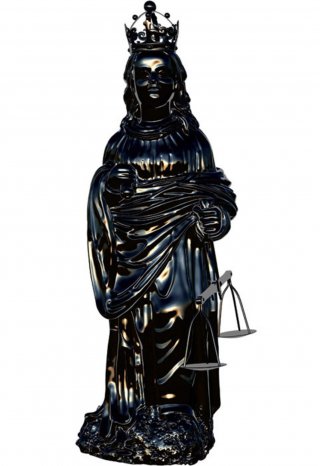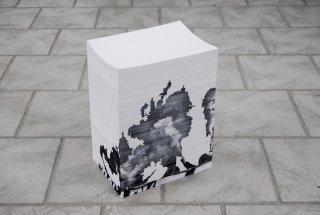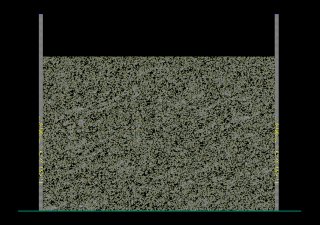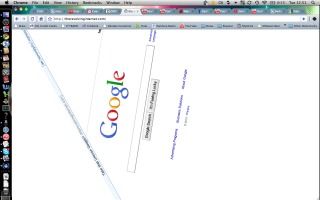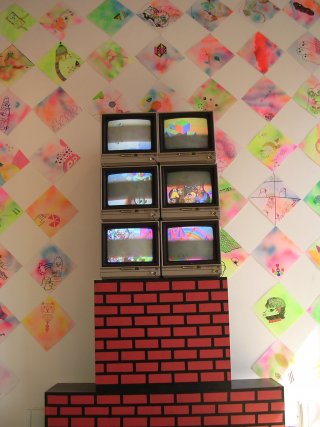EverythingIveEverWantedtoKnow.com
Martine Syms
2007
Martine Syms’ EverythingIveEverWantedtoKnow.com is a conceptual work of net art. Visiting the site presents the viewer with a drop-down menu that features all of the artist’s Google searches from a three year period, from 2004 to 2007.
Inspired by the constraint-based strategies of the 1960s European movement OuLiPo, the work explores the web search as a writing practice. By keeping her own record of searches over time, Syms calls attention to the way one user’s language was shaped by the larger system that surrounded it.
Sometimes revealing, but mostly opaque, Syms’ list of her search terms calls into question the collection and use of such data to measure and classify users. It is a diary without a voice, an impoverished record of the artist’s life, but an evocative study of her relationship with an increasingly powerful corporate platform.
“...the language of search was the focus, instead of the content of my queries.”
– Martine Syms
Visitors to everythingiveeverwantedtoknow.com are greeted by the work’s title in a large, stylish sans serif, under which sits a drop-down menu.
Opening the menu, they’ll find an alphabatized list of words and phrases. Clicking any of them leads them back to the landing page.
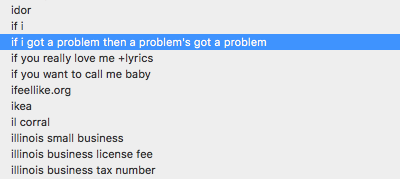
The words are various Google queries made by Syms over a period of three years, although the work contains no hints at this. Through a quick scan of her searches, one can learn something about her efforts to break her lease on her Chicago apartment; she also searches “Blade Runner” and “Chanel No. 5.”

Read Aria Dean's interview with Martine Syms
Presenting her searches without comment, Syms shifts the focus of this otherwise diaristic exercise away from the search terms and toward the act of searching itself.
By 2007, Google had become an object of fascination and critique for many artists. The Rhizome online exhibition “Google Art, or How to Hack Google,” curated by Ana Otero, brought together a number of examples of works that sought to highlight or work against the platform’s growing importance.
“In an information-based age, the ability to search and organize information amounts to power. Search engines shape knowledge, modulate web traffic, and contribute to the creation of new semantics and meanings. Currently, Google's influence is unparalleled.” – Curator’s statement from “Google Art, or How to Hack Google.”
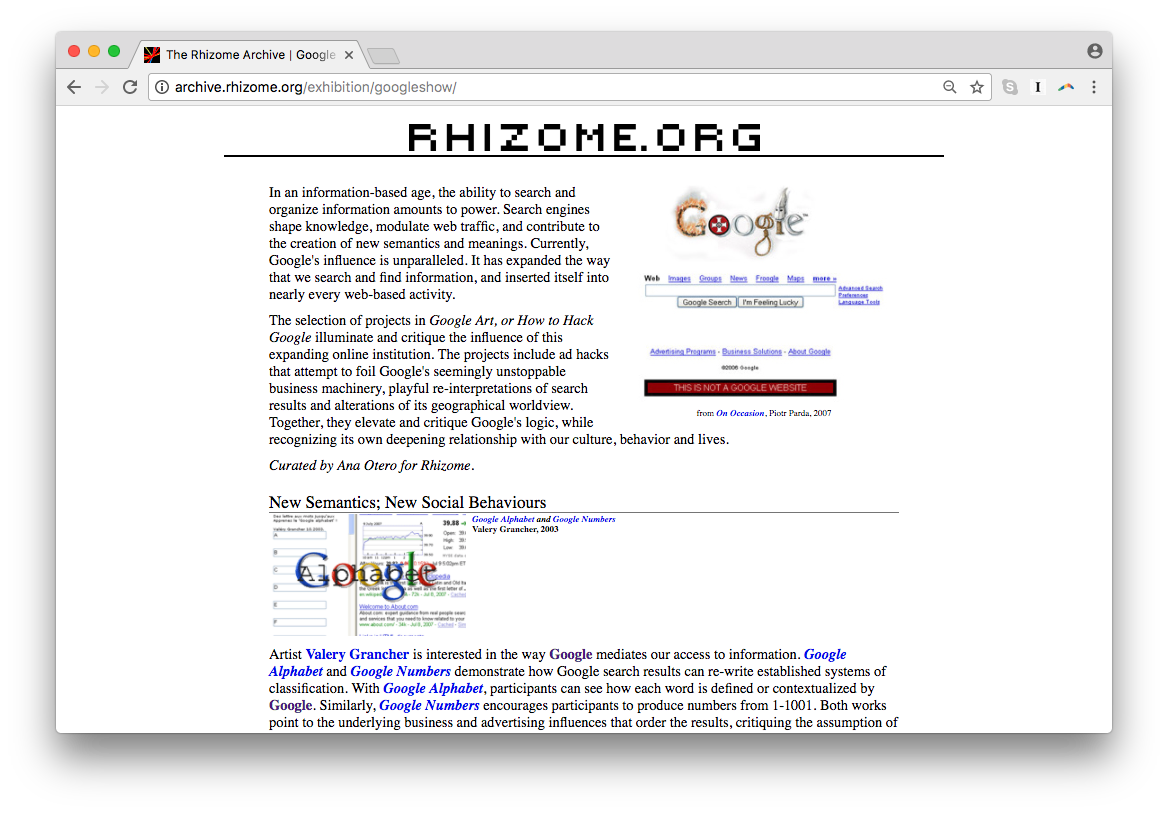 Screenshot of “Google Art, or How to Hack Google.”
Screenshot of “Google Art, or How to Hack Google.”
Syms differs from the artists in this exhibition in that she offered no intervention into Google’s usual function. She used it as intended, while meticulously recording her searches in an offline document. (Google did not give users the option to download their search history until 2016.)
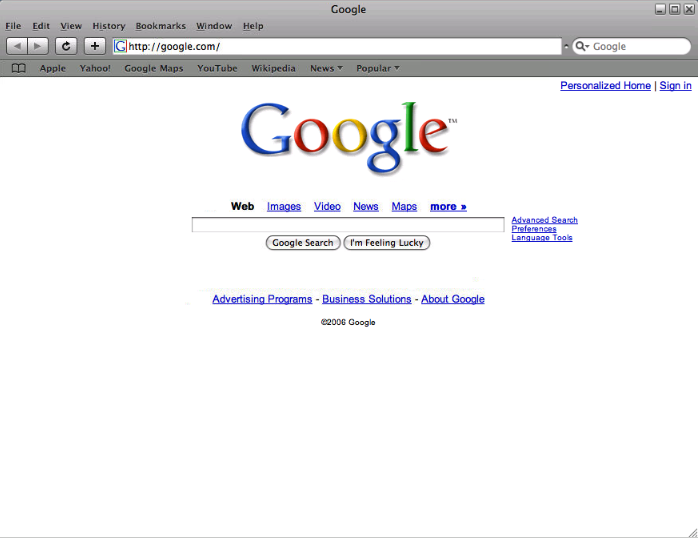 Screenshot of Google.com, archived in October 2006. Via Oldweb.today.
Screenshot of Google.com, archived in October 2006. Via Oldweb.today.
The artist has written that she was inspired by the French avant garde poetry movement OuLiPo, following in their systematic and self-restricting way of making texts: for example, Georges Perec wrote a 300-page novel without the use of the letter e. Syms’ constraints were dictated by the platform itself.

The French movement rejected the idea that the unconcious should be a primary source for literary production. Syms’ project is more ambivalent: it leaves the reader uncertain as to whether this data set offers more than a glimpse of her interior life.
While a diary traditionally displays its author's interiority, Syms' internet diary displays a new, poor interiority, based solely on data. Syms reduces herself to her activity as an internet user.
The project also frames this activity as a kind of performance. Keeping a public record of her searching habits changed her own behavior, in ways that prompt questions about what users consider to be “private” on an internet where such data is collected and sifted and strored.
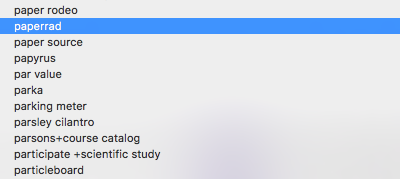
EverythingIveEverWantedtoKnow.com follows on from Lev Manovich’s discussion of databases as a cultural form. The work is structured as an alphabetical index, mapping the people, places, and things that make up a life in a non-chronological sequence.
“As a cultural form, database represents the world as a list of items and it refuses to order this list. In contrast, a narrative creates a cause-and-effect trajectory of seemingly unordered items (events). Therefore, database and narrative are natural enemies.” - Lev Manovich
Syms’ work can also be read as one user’s path through the much larger databases held by Google, although she resists showing any of the results delivered in response to her search terms: clicking on any of her strings simply leads back to the landing page.
“This was a kind of refusal: you could see what I was interested in, but you wouldn't get to see anything more.” – Martine Syms
The titular statement of the work, “Everything I’ve Ever Wanted to Know,” also comes across as an impossible exaggeration. Of course, it isn’t everything: there were, and still are, many kinds of knowledge that aren’t held in Google’s databases.
Martine Syms is a conceptual entrepreneur based in Los Angeles. Her artwork has been exhibited and screened extensively; recent exhibitions include Projects 106: Martine Syms, at the Museum of Modern Art, New York; The Easy Demands, CONDO: Bridget Donahue, hosted by Sadie Coles, London; Borrowed Lady, SFU Galleries, Vancouver; Fact and Trouble, ICA London; and Vertical Elevated Oblique, Bridget Donahue Gallery, New York. She is a faculty member in the School of Art at the California Institute of the Arts.
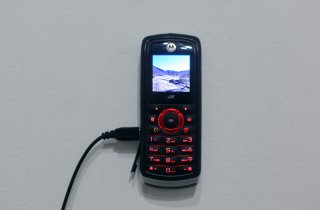 Transborder Immigrant Tool
Electronic Disturbance Theater 2.0/b.a.n.g. lab (Micha Cárdenas, Amy Sara Carroll, Ricardo Dominguez, Elle Mehrmand, and Brett Stalbaum)
2007
- ongoing
Transborder Immigrant Tool
Electronic Disturbance Theater 2.0/b.a.n.g. lab (Micha Cárdenas, Amy Sara Carroll, Ricardo Dominguez, Elle Mehrmand, and Brett Stalbaum)
2007
- ongoing
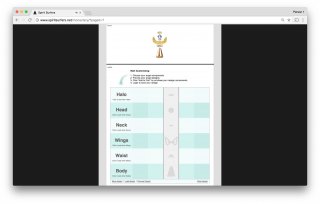 Spirit Surfers
Kevin Bewersdorf, Paul Slocum, Marcin Ramocki, Ethan Hayes-Chute, John Transue, Luke Murphy, Krist Wood, Aron Namenwirth, Harm van den Dorpel, Dragan Espenschied, Travis Hallenbeck, Olia Lialina, Peter Wilson, Patrick Armstrong, Patrick Groth, Peter Blasser, Chad Hopper, Rachel Abelson, Petra Cortright
2008
- ongoing
Spirit Surfers
Kevin Bewersdorf, Paul Slocum, Marcin Ramocki, Ethan Hayes-Chute, John Transue, Luke Murphy, Krist Wood, Aron Namenwirth, Harm van den Dorpel, Dragan Espenschied, Travis Hallenbeck, Olia Lialina, Peter Wilson, Patrick Armstrong, Patrick Groth, Peter Blasser, Chad Hopper, Rachel Abelson, Petra Cortright
2008
- ongoing
